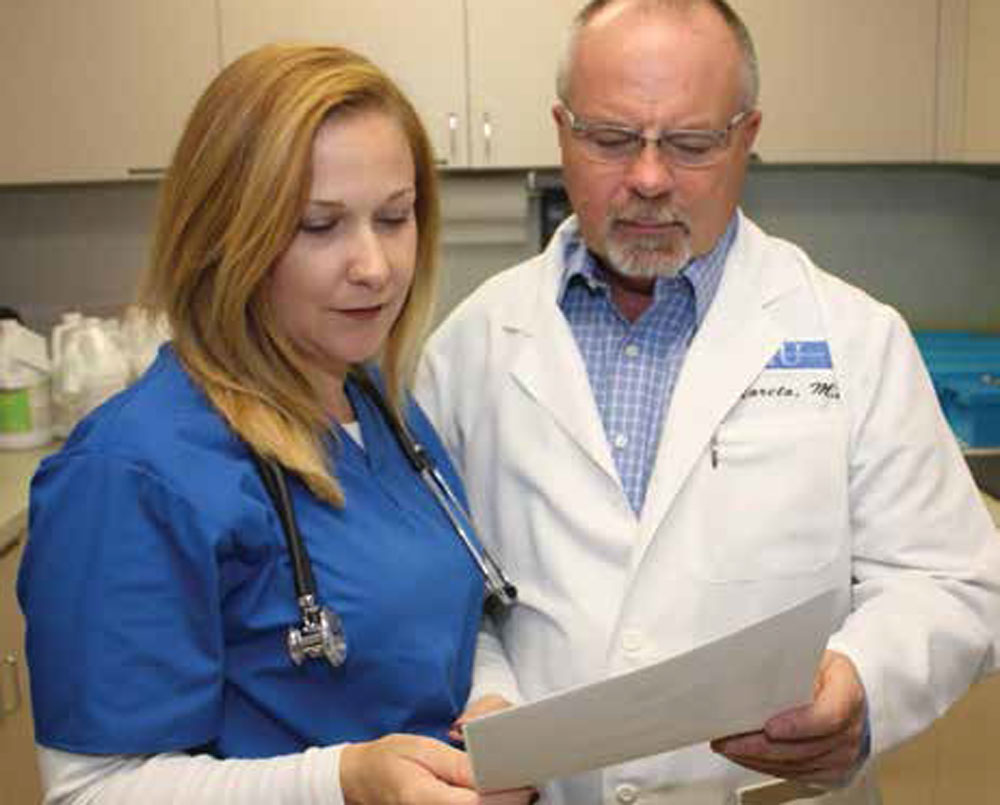Michigan Institute of Urology

Dr. Robert Di Loreto, colleagues and staff provide lifelong urology care.
By Nick Lico
We may not like to admit it, but the U.S. as a whole is aging. The first baby boomers are approaching 70 and the tail end are about to hit the half-century mark. With advancing age come certain urological issues, including cancer, prostate enlargement, incontinence and urinary infections. Thankfully, we have within Macomb County one of the oldest and largest urology practices in the state.
“Dr. Al Santino, Dr. James Boutrous and I started what is now the Michigan Institute of Urology, P.C., (MI U) over 36 years ago. Our goal was to bring in high-end, super-trained doctors with more training than regular urologists, allowing us to provide cradle-to-grave urology services,” said Dr. Robert Di Loreto.
According to Di Loreto, MI U is one of the earliest urology groups in the nation and fifth overall in terms of practice. Their size (25 locations, including five in our county) and expertise (60 physicians and mid-level providers with privileges at all the major hospitals) provide significant benefits to their patients.
“In addition to economies of scale, we can offer whatever our patients need at their local hospital. This makes it convenient for patients and their families, who don’t have to drive an hour or more to visit their loved one,” Di Loreto added. “We’re able to handle any aspect of urology. No one else offers this scope of service.”
MIU’s services aren’t limited to the elderly. “Macomb’s population is younger, which means there are a lot of kids. What we see in children is a lot of congenital urology-related issues, including, unfortunately, tumors. We have full-time pediatric urologists who manage those issues,” Di Loreto said. As Di Loreto explained, not all urology-related issues are cause for concern, but are often easily treatable. Some are simply the result of aging – such as getting up in the middle of the night to urinate. He strongly recommends discussing any urology concerns with your primary physician to determine whether a urology expert should be consulted.
“We make an effort to train the primarycare people via seminars and one-on-one training to point out issues they should be vigilant for and to send their patients to a specialist when the issue is outside their scope,” he said.
Fortunately, if an issue does arise, advancements in medicine mean many issues can be addressed via advanced treatments, including minimally invasive procedures, many of which can be handled on an outpatient basis or even in the office. For more information about MIU, please visit michiganurology.com.

